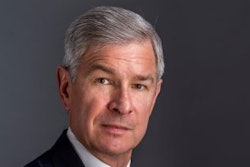Speaking to the nation on the death of Justice Antonin Scalia, President Obama praised Scalia, calling him a “brilliant legal mind with an energetic style, incisive wit and colorful opinions.”
Said the president from Rancho Mirage, California, where he is preparing for the Association of Southeast Asian Nations (ASEAN) Summit: “He influenced a generation of judges, lawyers and students and profoundly shaped the legal landscape. He will no doubt be remembered for being one of the most consequential members on the Supreme Court. Justice Scalia dedicated his life to the cornerstone of democracy, the rule of law.”
And with that, without being specific, the president said that he would fulfill his constitutional responsibility to name a successor “in due time.”
He added: “There will be plenty of time for me to do so and for the Senate to fulfill its responsibility to give that person a fair hearing and a timely vote. These are responsibilities I take seriously as should everyone. They are bigger than any one party. They are about our democracy.”
When Chief Justice William Rehnquist died in September 2005, his replacement John Roberts was named and installed within a month.
But in a presidential election year, with 34 Senate seats also in play, the death of Scalia and his replacement becomes an urgent campaign issue.
In Saturday’s GOP presidential debate, frontrunner Donald Trump was clear there should be no rush for a replacement, especially one picked by President Obama.




















